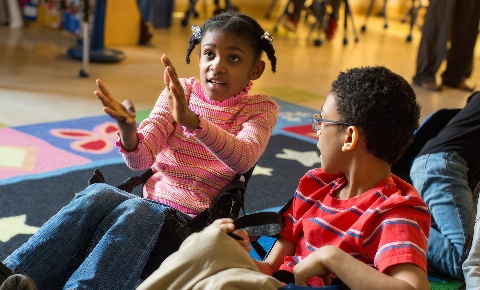SEL is Critical for Success, So Why Are We So Critical About It?

Think about the qualities of an ideal colleague, partner, or friend… collaborative, friendly, flexible, kind… the list can go on, but all these traits demonstrate a sound understanding of self and an ability to work well with others. Isn’t this the type of person we would all want to work with? Isn’t this someone we all aim to be? Don’t we need all these traits to be successful?
The fact is that social emotional awareness and competence is not simply an inherent trait. It is knowledge that needs to be taught, acquired, and practiced to achieve success not only on an academic and professional basis, but also in our personal relationships. How can we expect students to learn to manage their emotions, be emotionally intelligent, and problem solve in an appropriate manner when we are not explicitly teaching these skills as a collective community?
While some may feel that it is not the place of a school to determine which values are essential, can we not all agree on core quality traits of honesty, integrity, cooperation, and empathy to positively interact with others and basically be a good human?
Let’s first clear some possible misconceptions:
SEL is:
- learning how to channel feelings in a socially acceptable manner.
- using self-awareness to set and achieve goals
- have a healthy self-perception
- making responsible decisions
- an approach to teach mindfulness
- strategies to manage emotions through recognizing and regulating
- interpersonal skills
- based on research and best practices
SEL is NOT:
- a behavior management system
- a way to control emotions
- character development that invalidates culture<
- a political stance
- emotional manipulation
- critical Race Theory
- progressive sexuality and gender identity promotion
So how can we promote student success?
By distinctly infusing, implementing, and integrating social emotional learning throughout the school day, every day. This is not only the job of the classroom teacher, but a responsibility that every individual in the school should uphold. Leading with empathy and being mindful of how we affect others is a philosophy that penetrates throughout the school. A positive school climate and culture impacts everyone not only inside the school including administrators, staff, and students, but also outside the school, such as family and community members.<
While students grow in their academic success and experience more joy in school with social emotional learning, this is not the goal of SEL. It is just one of the many beneficial side effects. We know something is critical and crucial when it contributes to academic success as well as personal growth. Students need to be taught specifically how to work cooperatively and be kind. Teaching SEL does not need to be an additional content area. We can teach the same content differently. Like this:
- In literacy, learning how to identify emotions through character traits and illustrations.
- Working in cooperative groups and roles in science lab work
- Exhibiting grit and positive problem-solving skills in math
- Understanding different perspectives in history
- Starting each day with morning meeting, positive affirmations and a greeting
Putting it simply, it’s learning how to get along with others. Recognizing that we are made up of many components, some similar to others and some completely unique to us. Navigating these differences and being proud of our exceptionalities are notions we need to embrace. Respecting the role culture plays in how we express and exhibit emotions is important. This is one reason why collaboration with families and communities is key.
Our children are bombarded regularly with examples of celebrities, athletes, even government leaders exhibiting outrageous displays of emotional dysregulation such as breaking a tennis racket during a championship game, physical aggression on national live television at the disagreement of opinion and public bullying. When children view their role models exhibiting inappropriate conduct without a consequence, it can appear to be acceptable and to some, even entertaining. This makes it even more critical for students to learn the appropriate way to deal with differences, regulate emotions and develop social emotional competencies.
Clearly, SEL is not only for children, and it does not stop at a particular grade level. As we build our knowledge of math, reading and other content areas, we also need to be growing in our emotional intelligence to be successful. Social emotional learning teaches awareness that benefits not just a single group, but society as a whole. It seems more than what the concepts consist of, there is pushback on the named concept. “SEL” “CRT” and “Character Development” appear to be triggering buzzwords that are embedded in political stances rather than keeping the focus on learning about healthy social and emotional topics. SEL has been prevalent, even before it was coined “SEL.” Previously labeled as soft skills and social competency, but just as a rose by any other name would smell as sweet, social emotional learning will continue to have a profound impact on a student's well-being and overall success. For the present and our future, SEL is the secret to sweet success.
About the author
Asima Bhatty is a compassionate, culturally responsive educator and SEL Facilitator for a public elementary school in Arlington Heights, IL. A lifelong member of Omicron Delta Kappa: the National Leadership Honors Society, and current Teacher Leadership graduate student at Northwestern University, she exemplifies lifelong learning through reflection, growth and collaboration. She is passionate about uplifting others through a social emotional learning approach. After five years of teaching in the classroom and instilling values of positivity and emotional intelligence, Asima is spreading her message to other teachers with hopes of sparking creativity and generating joy into our important work. She has led professional development courses in the areas of SEL and Culturally Responsive Teaching. Asima is committed to nurturing students to become optimal learners, empathetic individuals and empowered future leaders.